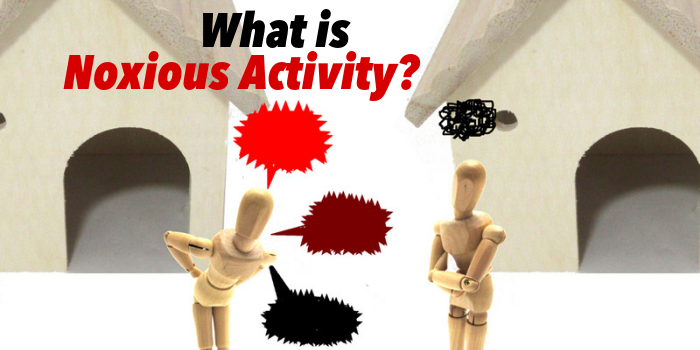Within any HOA, you’ll find a variety of folks with differing lifestyles, interests, and personalities. While diversity creates a well-rounded community, it can also be a breeding ground for frequent disagreements and complaints. It’s not uncommon for a homeowner to approach their HOA board when they find the actions of a neighbor offensive or bothersome.
The goal of any HOA should be to limit the activities of one homeowner from affecting, or having a negative impact on, another homeowner. Let’s take a look at a few examples of common HOA homeowner complaints and the best course of action to reach a peaceful resolution:
Noise
HOA boards will be the first to tell you that not all ears are created equal. While some overly-sensitive homeowners may complain about common, everyday noises, others may rightfully protest loud music late at night, a barking dog early in the morning, or a neighbor who has recently taken up a HAM radio hobby that can be heard non-stop through adjoining walls.
Smell
Because HOA residents live in relatively close quarters, the smell of smoke, strong spices, unattended garbage, or ungroomed pets may cause distress for neighbors who find the stench is overwhelming.
Sight
When an owner lets their property become unkempt or littered with trash, junk, vehicles, or even clothes drying on a line, the complaints may come rolling in.
Next Steps
When it becomes the board’s difficult task to help homeowners resolve their disputes, board members must first and foremost determine if the activity in question is in fact “noxious,” meaning that is it harmful or injurious to the health or physical well-being of the complainant. They can then move forward to settle the issue.
Communication is Key
Often, residents turn to the board for help before attempting to communicate with the offending neighbors. There’s a good chance that the person next door wasn’t aware that their music was too loud, or that they didn’t realize their cigarette smoke could be smelled through the vents. Most people want to have a good relationship with their neighbors, and with encouragement from the board, a simple conversation between the two parties often results in an immediate resolution.
Governing Documents
When a board is tasked with resolving a complaint or dispute, they will need to turn to their governing documents. Most associations’ CC&Rs include language prohibiting noxious or offensive activities, and may also include specific rules against smoking, pets, noise, and other common complaints.
Rules should be as objective as possible and enforced uniformly. When the nuisance doesn’t apply to a specific rule, the board must determine how the behavior affects others and either amend the rules to reflect their determination or deal with all other similar situations in the same manner. Whatever is decided, consistency and transparency are key to finding the right balance and maintaining peace in the community.
Related: Neighbor to Neighbor Disputes
For specific questions about your community, contact Spectrum Association Management today and see why our customers rate us as one of the best HOA management companies servicing Arizona and Texas.







